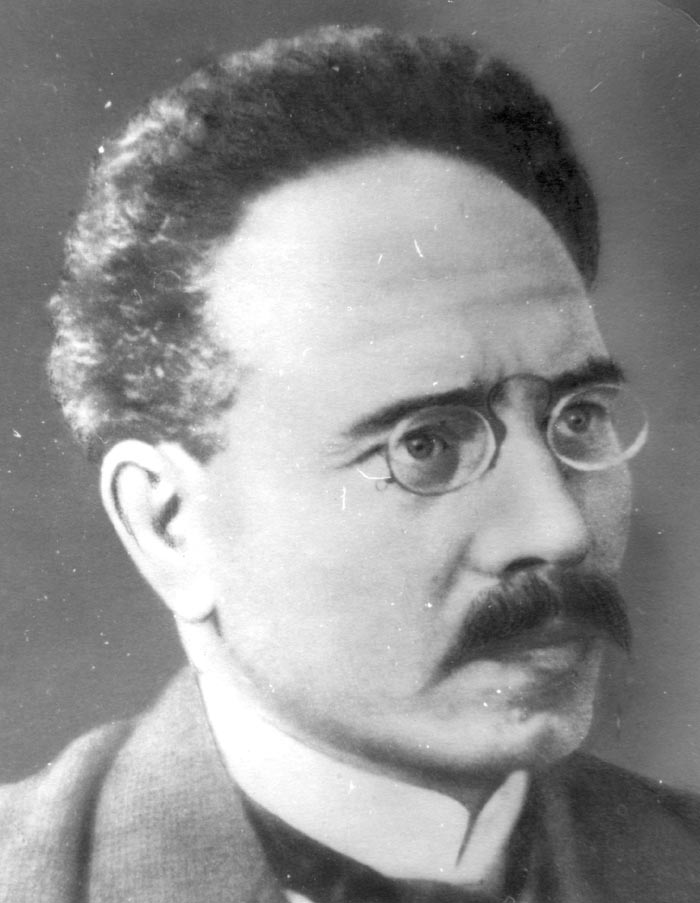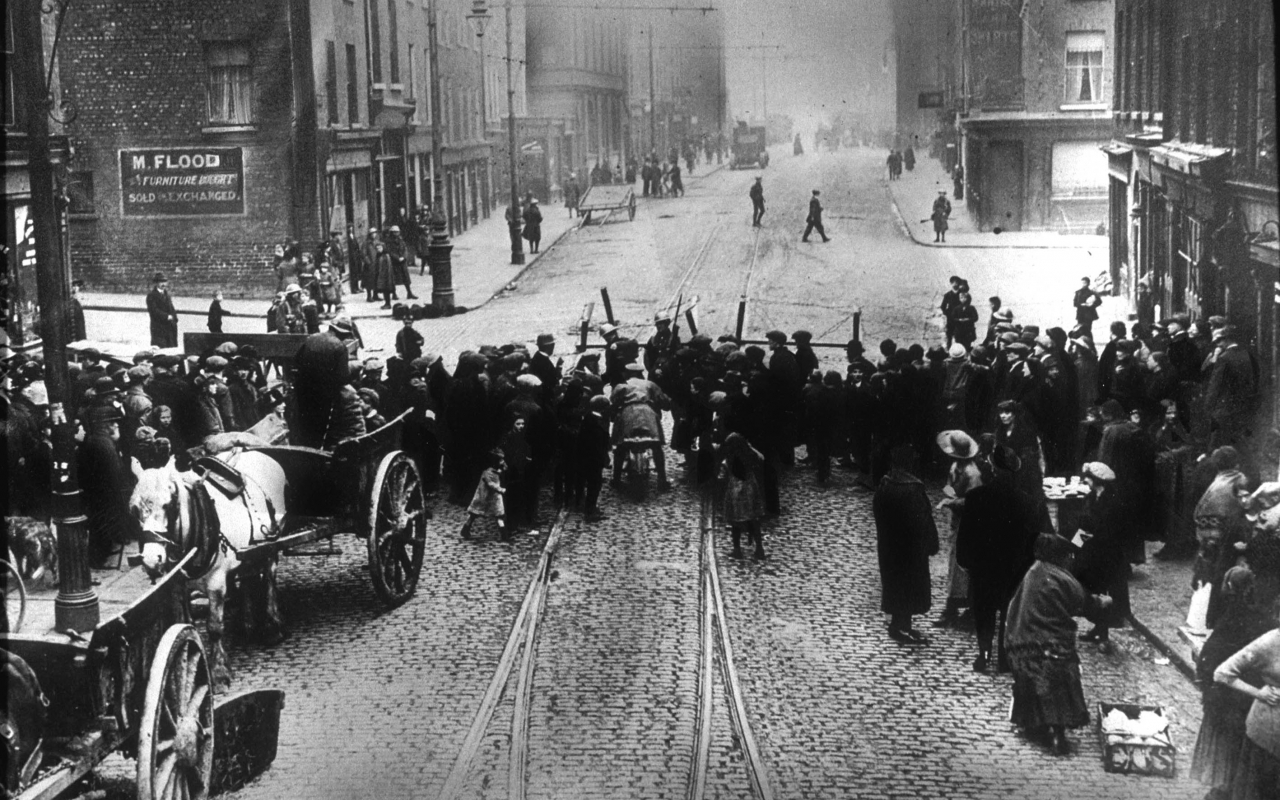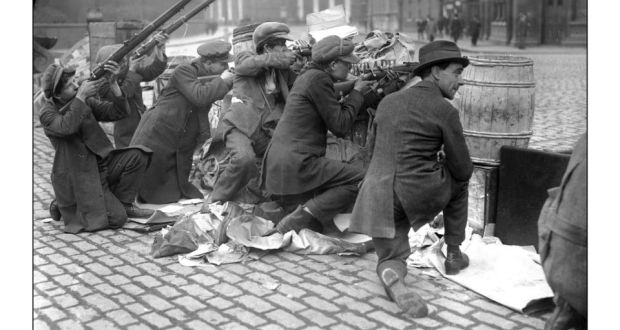Irish Uprising Crushed but Anti-War Sentiment Spreading;
Even in Germany, Support for War Weakens
Special to The Great War Project
(23-26 April) Support for the war in Europe, even in Germany, is beginning to crack.
A century ago in April, there is turmoil in the Reichstag, the German parliament. Karl Liebknecht, the leader of the German Social Democrats, rises to challenge Germany’s continued participation in the war.

German anti-war leader Karl Liebknecht
According to historian Martin Gilbert, Liebknecht enrages “the patriotic mass of members by interrupting the Chancellor to declare that Germany was not free, and that the German people had not wished for war.”
On Easter, April 24th a century ago, anti-war representatives gather in Switzerland. Liebkhecht is there meeting with French activists.
They “denounced the war as a capitalist conspiracy,” Gilbert reports, “fought for the benefit of arms profiteering and territorial gain.”
The Russian revolutionary leader, Vladimir Lenin, also is there. Russia’s secret police believe revolutionary sentiment in Russia is growing.
On the same day that the meeting in Switzerland takes place, Britain confronts a new challenge, this time on its own doorstep.
An anti-British uprising erupts in Dublin.
“At this worst of possible moments,” writes historian Adam Hochschild…
“the largest insurrection in a century had broken out in Ireland.”
The problem of Ireland has been festering for quite some time, and now some Irish rebels are making common cause with Germany.
“Since the outbreak of war,” observes Gilbert, “the Irish nationalist Sir Roger Casement had been pressing the Germans to take the potential of Ireland’s rebellion seriously.”

Police build barricades in central Dublin during Easter Uprising, April 1916.
As a result, the Germans smuggle rifles and ammunition to the Irish rebels. They attempt by submarine to land Casement in Ireland, but he is arrested. He is executed a few days later.
Nevertheless, the uprising goes ahead. More than a thousand rifle-toting Irish rebels march to Dublin’s center. They proclaim an independent Irish republic. Some read out a proclamation in which the Germans were described as the Republic’s “gallant allies” despite the thousands of young Irish men who have been killed by the German army in the trenches of northern France.
Other rebels hoist a flag proclaiming We Serve Neither King nor Kaiser, but Ireland.
The British attack the rebels in the city center. They use a gunboat on the nearby River Liffey to shell rebel positions.
The rebels believe their attack will spark a general uprising from the Irish population. They hope it will spread beyond Dublin. But none of that is forthcoming.
The uprising is soon crushed. Some blocks in Dublin are reduced to rubble. The insurrection does not spread. Its leaders are executed.

Irish rebels in Dublin, April 1916.
In a week of street fighting an estimated 400 are killed, 2500 wounded.
The outbreak of rebellion is a serious challenge for the British.
“As Britain’s experience in Ireland had shown,” writes Gilbert, “conflict which had broken out in the autumn of 1914 on the battlefronts and oceans, and had come to focus in 1915 on parallel lines of trenches, could no longer be restricted to the confrontation of opposing armies.”
“Ideologies, national and political, were also capable of violent exertions.”

I missed this post. It provides a nice context to events occurring simultaneously to WWI. The Irish Rebellion is particular is fascinating, especially with the visit to Germany and the agreement to supply weapons. I recently watched ‘1916 the Irish Rebellion’ on PBS and the decision of Irish rebels to contact Germany was “the enemy (Germany) of my enemy (Britain) is my friend”. Since the arms deal was signed, sealed and (sort of) delivered, I guess Germany agreed with the rebels. If the arms shipment hadn’t been discovered by the British, it leaves me wondering what would have transpired in Dublin that Easter weekend 100 years ago.
Many thanks Christopher. Very good to include additional information about the Irish Rebellion. Makes it even more interesting and worthwhile to touch on.